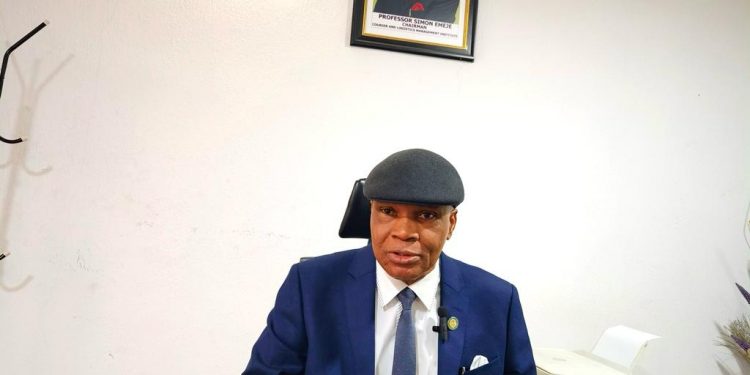The Executive Chairman of the Courier and Logistics Management Institute (CLMI), Simon Emeje, has emphasized that Nigeria’s courier and logistics sector has the potential to increase the country’s GDP by 60% if fully leveraged. With assets valued at over N15 trillion, Emeje stressed that the industry requires regulatory innovation and excellence to unlock its potential.
Speaking at a press conference in Lagos on Friday, Emeje announced that Nigeria’s Vice President, Senator Kashim Shettima, will be the distinguished special guest of honor at the upcoming CLMI International Conference and Investment. The event, themed “Unlocking Economic Potentials and Fostering Nation-Building through Logistics Instruments,” is set to take place on November 14, 2024, in Lagos.
Emeje expressed concerns that the sector remains underutilized due to the government’s failure to implement strong regulatory frameworks that encourage innovation, investment, and growth. He noted, “This industry, with its vast assets, deserves federal recognition. Logistics and courier services drive economic growth by over 60%, enhance supply chain efficiency, reduce costs, and boost competitiveness.”
Highlighting the industry’s significant role in employment, Emeje stated that millions of Nigerians work in logistics, surpassing even the oil and gas sector. These jobs range from truck drivers and warehouse workers to supply chain managers and freight forwarders.
He also pointed out that a well-developed logistics infrastructure is key to boosting global trade, economic integration, and national income growth. “Courier services are essential for meeting customer demands and ensuring efficiency,” Emeje added.
Emeje urged policymakers to recognize the sector’s potential and implement supportive regulations that will help the industry thrive. He also emphasized the need for skills development, pointing out that only a small percentage of professionals in the sector have the expertise to lead capacity-building and training initiatives.
“There is no sector of the Nigerian or global economy that is not linked to courier and logistics. The government is looking for funds to develop infrastructure, but the money is in our hands—we just don’t know how to tap into it,” Emeje concluded










